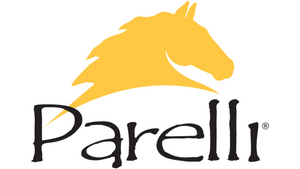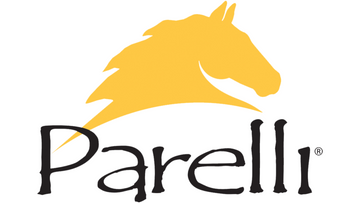Think It’s About the Trailer? Think Again
presso Parelli Natural Horsemanship su Dec 08, 2021

You plan weeks in advance to take that incredible trail ride on the beach. Your trailer is packed and you’re excited to hit the road with your barn buddies. Everything goes to plan up until the day of the ride, and your horse refuses to load. After a fit of pulling back, kicking, and finally just halting as far away from the trailer as possible, you give up and commit in your mind to working on trailer loading before the next group ride.
We’ve all been in that position before: where your horse has a negative opinion about a situation, and you’ve run out of tools, time, and patience to change his mind.
What if you knew that your horse’s big reactions had little to do with the trailer, and more to do with his internal programming? If you reflect on your horse’s behavior elsewhere, you’ve probably seen similar patterns and behaviors when faced with other negative experiences.
Understanding Patterns in the Equine Mind
Horses are pattern animals and will adopt a series of behaviors to help them get “relief.” They have learned that if they flee from fear, they’ll be able to stop in safety. Therefore, if they pull away from the trailer, eventually they’ll go back to their stall.
Most people interrupt these patterns by applying more pressure. With trailer loading, you’ve likely seen the rope around the rump technique, whipping from behind, and other methods of escalating pressure. But our job, as our horse’s partner, is to find a way of communicating that doesn’t just mean adding more pressure.
To do this, you’ll need more tools, and not the kind you buy at a tack shop. You need a technique that leverages partnership (not pressure) to get your desired outcome.
Recalibrating Your Perspective
The first step is to see the situation from your horse’s point of view. Ask yourself, “Why does he not want to get into the trailer?” He is either afraid, just doesn’t want to, or doesn’t understand the process. In other words, it is a fear, dominance, or confusion response.
Take a step back from the situation and ask yourself which emotional state best describes your horse:
- Fear: If his opposition is fear-based, don’t just push your horse into the trailer. Use the retreat and reapproach method to build confidence. Ask your horse to touch the trailer, back away, then slowly ask for more.
- Dominance: If your horse is being dominant, then make yielding more important than loading in his development. Ask your horse to keep slack in the rope vs “step up.” This may not seem like much, but shifting your focus from “get in” to “participate with me” will make a big difference in your horse’s experience of the ask.
- Confusion: Lastly, if your horse is confused, don’t get stronger, get clearer (in this case, the “nose, neck, and maybe the feet” mantra could be helpful). Make your ask as simple as possible and build on it until you’ve reached your desired goal.
Beyond the Trailer
You know your horse better than anyone, so you know that these behaviors aren’t unique to just you or to the trailer. These big reactions are happening in other areas of your horse’s life, and are merely exacerbated by the trailer. This is great news! You have the opportunity to deepen your partnership with your horse and solve a lot of issues by working on this one response pattern.
To better understand your horse’s behavior, the best thing to do is look below the surface. All equines are driven by instinctual mechanisms to survive and thrive in the wild. The Ultimate Horse Behavior Series is a practical program about reading equine behavior and applying horse psychology to your partnership, handling, and riding. Through this program, you’ll begin to feel, think, act, and play more like your horse and create a partnership that you both can enjoy.
These videos are on PRESALE NOW! They will be available on DVD or USB flash drive. Shipping in November.






